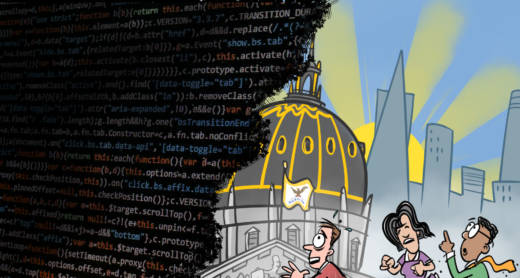A San Francisco ballot measure that sets data-privacy goals, but rankled transparency advocates, appears to be passing. As of 8:35 Wednesday morning, the count shows that 57 percent of the electorate voted to approve it, while 43 percent voted no.
Proposition B, the Privacy First Policy of the City and County of San Francisco, was written by Supervisor Aaron Peskin and placed on the ballot by a unanimous vote of his colleagues. It would require the city administrator to create a framework to guide policy decisions when it comes to corporations collecting and storing people's data in San Francisco.
The measure had drawn over 56 percent of early vote-by-mail and election-day tallies, counting about 30 percent of the expected total. The opposition trailed with 43.21 percent of votes.
Proponents touted the measure as a chance for San Francisco to lead on the issue of data privacy, and Proposition B is seen as striving for stronger protections than the state Consumer Privacy Act set to take effect in 2020.
Government transparency advocates, local newspapers and journalism organizations opposed Proposition B over fears that a clause in the proposed charter amendment would allow city supervisors to amend — and potentially weaken — San Francisco's landmark open records law.
